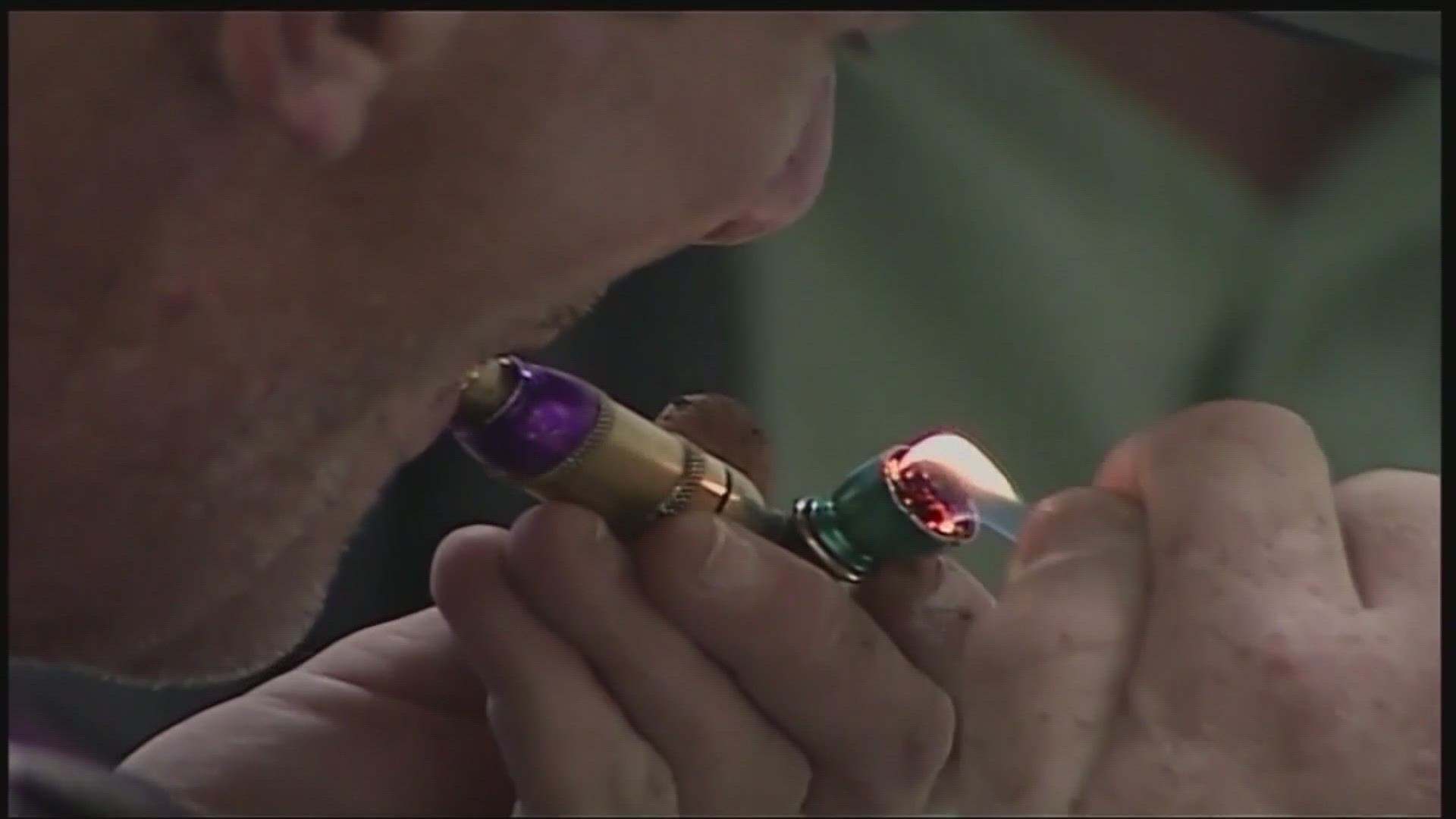SAN DIEGO — Recreational marijuana use has been legal in California since 2018. But can field sobriety tests identify drivers under the influence of cannabis?
A new study by UC San Diego evaluates how effective field sobriety tests are at measuring THC exposure and impairment.
Road safety is critical as cannabis consumption gains more popularity since it was legalized in California, but what the findings of this study show is that it remains unclear how useful these field sobriety tests are in identifying drivers under the influence of THC.
Field sobriety tests may be insufficient in DUI cases involving cannabis, that’s according to a recent study by a team of researchers at UCSD.
“The field sobriety tests are things such as touching your finger to your nose, walking a straight line going heel to toe. Lifting your leg in the air and standing on one leg," said Thomas Marcotte, professor of psychiatry at UCSD School of Medicine and co-director of the Center for Medicinal Cannabis Research.
The study included 184 adult cannabis users between the ages of 21 and 55. 63 participants were given a placebo cannabis cigarette while 121 received a THC cannabis cigarette.
Trained law enforcement officers then performed filed sobriety tests at four different time intervals. Roughly around one, two, three and four hours after smoking.
“What we did find was that the field sobriety tests are indeed sensitive to THC exposure," continued Marcotte.
In the study, officers determined a significantly higher proportion of participants in the THC group as being impaired based on the field sobriety tests compared to the placebo group.
“What we found was that 81% of those individuals who’d received THC did poorly on the field sobriety tests were called impaired by the officers. But what we also found was that 49% of those people who received a placebo also did poorly on the field sobriety tests and were called impaired," added Marcotte.
Regardless of whether the participants received THC cigarettes or the placebo, officers estimated 99% of those who failed the tests received THC.
“So in this study the attribution was that if you failed the field sobriety tests or did poorly on them that you must’ve received the THC when in fact that was not the case. In this case the field sobriety tests themselves really were not good at determining if someone’s impaired by cannabis or not," said Marcotte.
Marcotte says while cannabis can be impairing, the effects vary for each individual. He says what’s surprising in this study is the high number of people who took the placebo and were labeled impaired, "about half of the people in the placebo study were found in impaired. In this case it was about 50% which is quite high."
The study also looked at driving performance and what they found was that people who did poorly on the driving simulator did worse on the filed sobriety tests.
Marcotte says he expects the findings of this study will foster even more research in trying to find ways of identifying impaired drivers.
The Department of Motor Vehicles and the California Highway Patrol will soon be looking for volunteers to light up a joint and get behind the wheel. It’s a follow up study that will focus on the impacts that smoking cannabis has on driving abilities. The study aims to recruit 300 participants and is set to begin in late summer.
WATCH RELATED: Law enforcement agencies across the country seeing more marijuana laced with fentanyl

